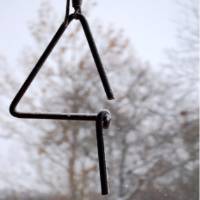
In this session, participants will gain a deeper understanding of meaningful Bell Ringers through the modeling of interdisciplinary instructional strategies. Participants are asked to a) address superficial uses of Bell Ringers and more meaningful uses of Bell Ringers, b) actively engage in authentic... Read more »

Students will use a graphing tool to analyze basic transformations on linear, absolute value, and quadratic parent graphs in order to create general rules about function transformations. Read more »
Function Transformations

In this lesson, students explore the differences between inductive and deductive logic and how to use that reasoning to draw logical conclusions. Read more »
Inductive and Deductive Logic

In this lesson, students will determine the credibility of a source. Students will first examine professional writing and web pages, then they will use a reflective strategy to help them analyze and determine the credibility of sources. Read more »
Evaluating Sources

This lesson addresses writing linear equations when given a graph. Students will use their knowledge of slope and y-intercept to analyze linear graphs and represent what they see graphically as an equation. This lesson also offers an opportunity to reiterate the meaning of slope and y-intercept, while... Read more »
Writing Linear Equations: Graphs

In this lesson, students will be introduced to general types of chemical reactions. They will look for patterns to group similar reactions together, then use that as a way to put academic language to those groups. A basic understanding of chemical reactions and notation is necessary to complete this... Read more »
Classifying Chemical Reactions

In this lesson, students will learn how to predict electron configuration and valence electrons by exploring patterns within the periodic table. Students will discover that elements are arranged in increasing order of their atomic number in the periodic table, and then the elements repeat their properties... Read more »
Introduction to Periodicity and Electron Configuration

This lesson is an investigation of the relationship between force, mass, and acceleration (F=ma). The lesson includes a lab activity, research poster, and reflection to introduce and reinforce Newton's 2nd Law of Motion. Read more »
Newton's 2nd Law of Motion

Students gather and analyze data, identifying all possible data that is less than, less than or equal to, equal to, greater than or equal to, or greater than the generated line of best fit. Read more »
Linear Inequalities

In this lesson, students toss balls of trash, or "trashketballs," into a wastebasket, recording their shooting percentage at various distances from the basket. With distances measured and percentages figured, students create a scatter plot and a line of best fit to make a linear model of the shooting... Read more »
Scatter Plots and Lines of Best Fit